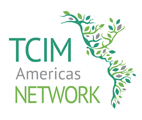Intercultural Health Policies: Strategies and Action Plans
In this section you will be able to access different strategies developed by WHO/PAHO and other international organizations such as ORAS-CONHU, with the intention to protect indigenous, Afro-descendent, Roma and other ethnic peoples, support health and well-being in these communities, promote traditional medicines and their knowledgebase, and strengthen the development and implementation of an intercultural lens in the health field.
WHO’s Traditional Medicine Strategy 2014-2023: This Strategy, published in 2013, served to update WHO’s Traditional Medicine Strategy 2002-2005, and had the objective to support Member States in “developing proactive policies and implementing action plans that will strengthen the role TM plays in keeping populations healthy.” It also aims to “support Member States in harnessing the potential contribution of TM to health, wellness and people-centred health care; [and] in promoting the safe and effective use of TM by regulating, researching and integrating TM products, practitioners and practice into health systems, where appropriate.”
Policy on Ethnicity and Health: Approved by Ministries of Health in 2017, this Policy promotes an intercultural frame that contributes, among others, to the elimination of access barriers to services, and improvement in the health outcomes of ethnic populations. This Policy highlights five strategic lines of action for technical cooperation towards addressing the health of ethnic populations. Among them is the recognition of ancestral bodies of knowledge and of traditional and complementary medicine. It seeks to promote and strengthen the dialogue across bodies of knowledge that will facilitate the development and strengthening of intercultural models of health as a way to achieve people- and community-centred care.
Universal Health Strategy: Access and Coverage for All: The Universal Health Strategy promotes universal access to health and universal health coverage, which “imply that all people and communities have access, without any kind of discrimination, to comprehensive, appropriate and timely, quality health services determined at the national level according to needs, as well as access to safe, effective, and affordable quality medicines, while ensuring that the use of such services does not expose users to financial difficulties, especially groups in conditions of vulnerability.” (CD53/5, Rev. 2 – Strategy for Universal Access to Health and Universal Health Coverage – PAHO/WHO | Pan American Health Organization y CD53-R14-e.pdf (paho.org)).
Sustainable Health Agenda for the Americas 2018-2030 – PAHO/WHO : represents the health sector’s response to the commitments made by the Member States of PAHO in the 2030 Agenda for Sustainable Development, along with the unfinished issues of the Millennium Development Goals (MDGs) and the Health Agenda for the Americas 2008-2017, as well as emerging regional public health challenges. The Agenda is operationalized through PAHO’s strategic plans and strategies, as well as subregional and national health plans.
Regional Meeting Advancing Towards Universal Health: Contributions of Traditional and Complementary Medicine: In June 2017, Nicaragua hosted the regional meeting “Advancing Towards Universal Health, Contributions of Traditional and Complementary Medicine.” During this meeting, experiences from 21 countries in the Americas region were exchanged, focusing on the implementation of traditional and complementary medicine within healthcare systems, academia, and research spaces.
Andean Intercultural Health Policy: Approved in the year 2014 by the Ministers of Health of the Andean Area through Resolution REMSAA XXXIV/490, with the objective of “Providing conceptual and strategic inputs that guide and/or strengthen the development of intercultural health policies, plans, and programs in the Andean countries; responding to the health situation and needs of indigenous peoples, Afro-descendants, and other populations living in the Andean subregion, within the framework of respect for their individual and collective rights, ensuring access to comprehensive care that is culturally relevant, of quality, with equality and equity in relation to the entire population,” and in order for “…the countries of the Andean subregion to promote and/or strengthen intercultural health actions that safeguard the right to health and the concept of well-being (or ‘buen vivir’) of indigenous peoples, Afro-descendants, and other communities, through strategic guidelines and coordinated actions with them.”
Strategy and Plan of Action on Ethnicity and Health 2019-2025: Document published by PAHO/WHO in 2019 with the aim of collaborating with Member States in implementing the five prioritized strategic lines of action in the Policy on Ethnicity and Health, namely: a) generation of evidence, b) promotion of policy action, c) social participation and strategic partnerships, d) recognition of ancestral knowledge and traditional and complementary medicine, and e) capacity development at all levels. The strategy promotes intercultural approaches in health and drives actions addressing social determinants of health, involving relevant groups and incorporating a gender perspective.









